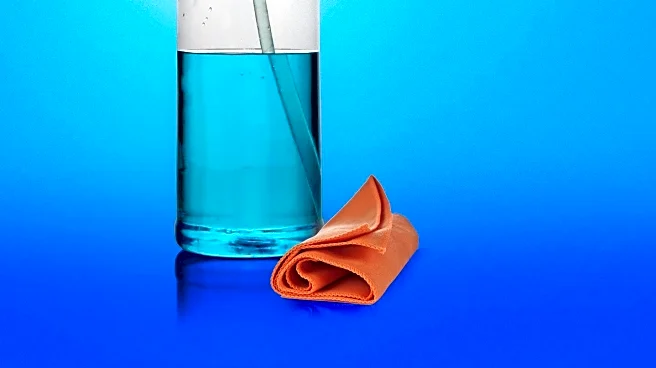What's Happening?
Recent studies suggest that certain nasal sprays may help prevent or reduce the severity of coronavirus infections. Researchers are investigating sprays that target the virus in the nasal cavity, where it commonly enters the body. One such spray, known as pathogen capture and neutralizing spray (PCANS), forms a gel-like coating to block viruses from reaching the nasal lining. Another study tested the antihistamine azelastine, which showed a lower rate of coronavirus infection among users compared to a placebo group.
Why It's Important?
The development of nasal sprays as a preventive measure against respiratory viruses, including the coronavirus, could offer an additional layer of protection alongside vaccines and other public health measures. These sprays could be particularly beneficial in high-risk settings or for individuals who are unable to receive vaccines. The research highlights the potential for innovative approaches to combat viral infections, which could have significant implications for public health strategies.
What's Next?
Further research is needed to determine the optimal use and effectiveness of these nasal sprays in humans. Ongoing studies aim to assess their safety and impact on health, particularly during peak cold and flu seasons. As the research progresses, these sprays could become a valuable tool in the fight against respiratory viruses, complementing existing preventive measures such as vaccines and masks.










